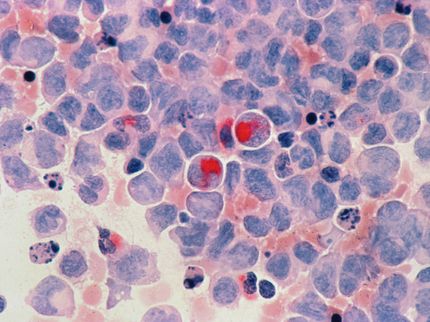Acacia Pharma initiates phase IIa clinical trial with APD421 for nausea and vomiting
Advertisement
Acacia Pharma announced it has initiated a dose-escalating, Phase IIa proof-of-concept study of its product candidate APD421.
APD421 is an intravenous formulation of a currently marketed dopamine D2 antagonist for the new use of prevention and treatment of nausea & vomiting. Acacia Pharma has shown APD421 to be highly effective in preclinical models of both chemotherapy-induced nausea & vomiting (CINV) and post-operative nausea and vomiting (PONV). APD421 could offer advantages over existing D2 antagonists used as anti-emetics, given its superior therapeutic window.
The single ascending dose study is taking place in four hospitals in Denmark and the UK, and will enrol up to 54 cancer patients receiving the highly emetogenic chemotherapy drug cisplatin. The primary endpoint will be protection from vomiting and no requirement for anti-emetic rescue medication during the first 24 hours after dosing with cisplatin.
Upon successful completion of this proof-of-concept study, Acacia Pharma will proceed to a dose-ranging study of APD421 in adult surgical patients. PONV offers the most rapid development opportunity for APD421, owing to the acute nature of the condition and the large number of surgical procedures performed. Despite a number of anti-emetics in common use, many patients still suffer post-operatively with vomiting and especially nausea. About a third of those given prophylaxis for PONV require rescue therapy in the first six hours after surgery, representing a substantial commercial opportunity. More than 130 million surgical procedures are performed worldwide each year, PONV occurring in approximately 35% of cases and in 70% of those classed as high risk.
Dr Julian Gilbert, Acacia Pharma’s CEO said, “Acacia Pharma has generated excellent preclinical data on APD421. This innovative proof-of-concept study is designed to confirm that the anti-emetic effects previously seen by Acacia Pharma translate to man, before we embark upon Phase II dose ranging.”
Most read news
Other news from the department research and development

Get the life science industry in your inbox
By submitting this form you agree that LUMITOS AG will send you the newsletter(s) selected above by email. Your data will not be passed on to third parties. Your data will be stored and processed in accordance with our data protection regulations. LUMITOS may contact you by email for the purpose of advertising or market and opinion surveys. You can revoke your consent at any time without giving reasons to LUMITOS AG, Ernst-Augustin-Str. 2, 12489 Berlin, Germany or by e-mail at revoke@lumitos.com with effect for the future. In addition, each email contains a link to unsubscribe from the corresponding newsletter.

























































